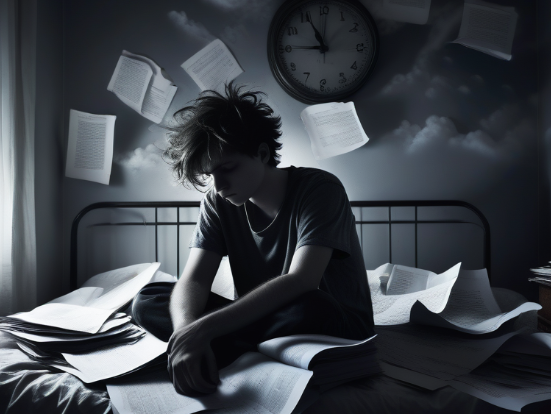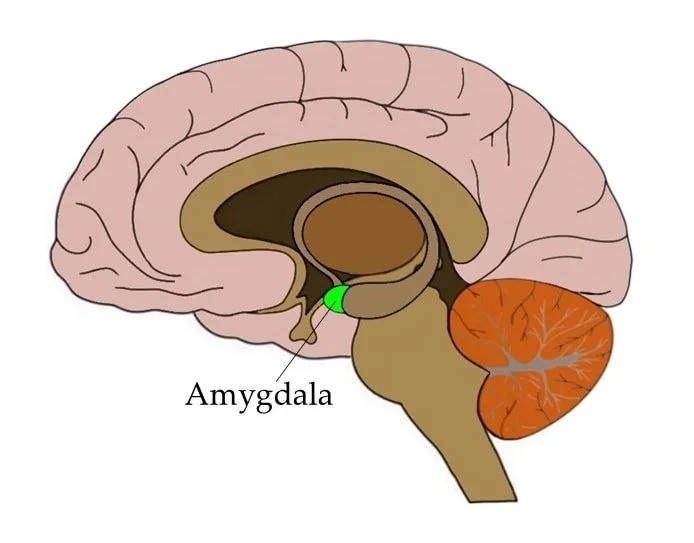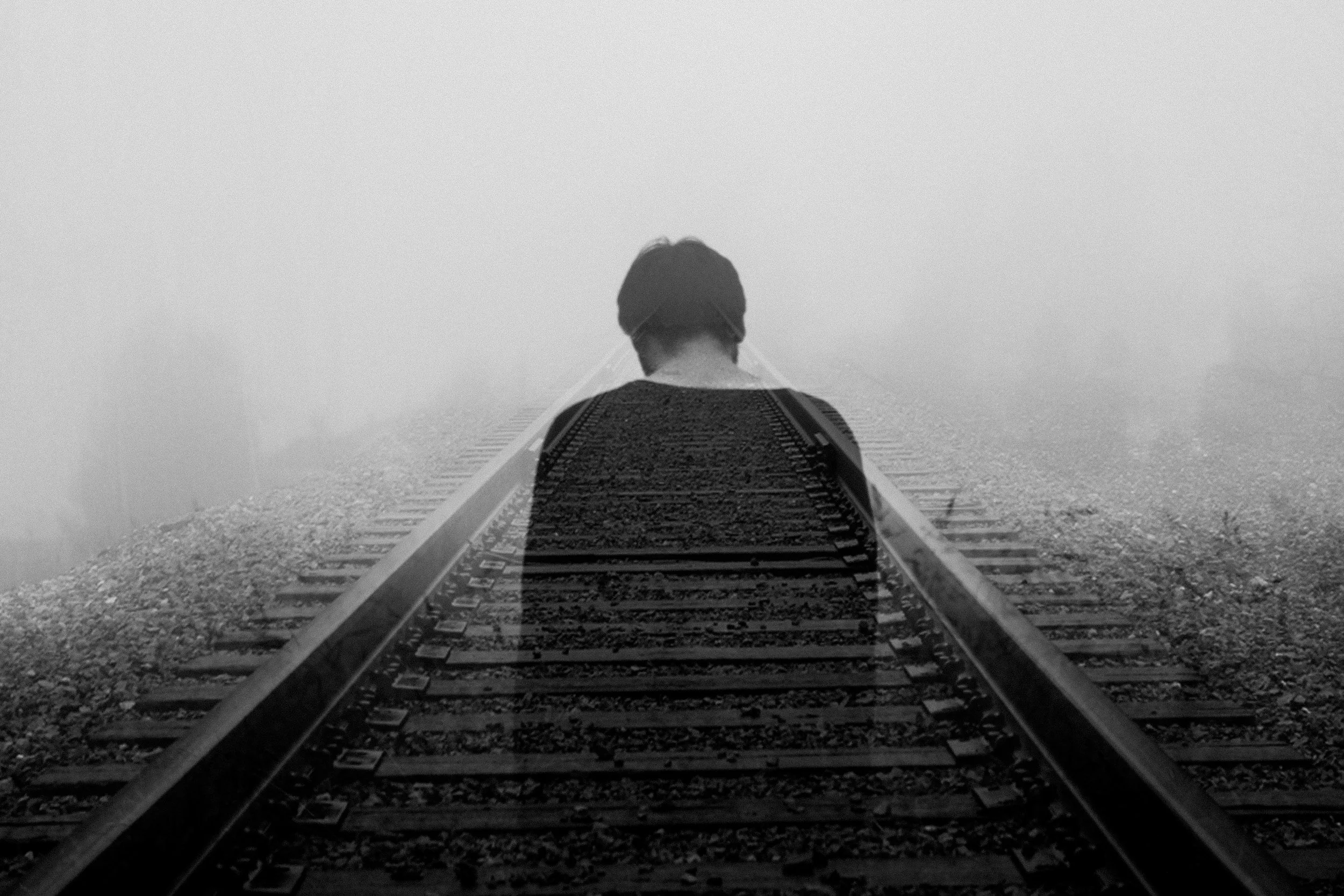Understanding Sleep Deprivation and Mental Health
Understanding Sleep Deprivation and Mental Health
In the previous blog post, we covered how chronic sleep deprivation can have long term physical consequences. This blog post is about the mental health consequences from a lack of sleep.
Major Mental Health Risks of Sleep Deprivation
Over the past few decades mental health has taken a more prominent place in modern culture and conversation. With renewed emphasis has brought more focused research, looking to find connections between sleep and our emotional and mental health.
Recently, researchers have discovered strong links between not getting enough sleep and issues like depression, anxiety, and relational turmoil. When you don’t get enough sleep, you increase the chances of facing health problems, both physically and mentally.
Think of it like ignoring your lawn. If you don’t take care of it, weeds will appear and the grass will overgrow. Only in this case, the "grass" is relational problems and the "weeds" is declining mental health...
image is not property of Guardian Health
Sleep's Role in Emotional Regulation
There are four ways we know a good night's sleep helps us emotionally:
1) Less Pain
When we are in pain, we are usually sad, annoyed, or mad. As stated previously, sleep keeps us physically healthy, and a healthy body presents one less thing to be stressed about or upset about.
2) Improves Cognitive Function
We have touched on this already, but in short... sleep improves and maintains our cognitive function. When we sleep, we can think faster, clearer, and more accurately. We have an easier time performing our daily tasks and making sense of the world and do not get as overwhelmed as easily. As a result, our emotions are not as challenged throughout the day.
image is not property of Guardian Health
3) Better Processing of Experiences
Whether it be stress and trauma, our minds and bodies do not like it just "sitting there", overwhelming us and preventing us from living our lives. At the risk of oversimplifying, we can be resilient (where it doesn't actually effect us), ignore it even though it is effecting us (which never truly works), or process it (reintegrate it into our identity and worldview).
Trauma, no matter how mundane or minor, must be processed. And once we process it, we become more mature and resilient. But processing is emotionally taxing and time consuming... which is why some of it is done while we sleep!
A lot of the time our dreams are dictated by our experiences throughout the day. The exact role is still unclear, but we know that daytime emotional stress affects sleep by influencing sleep physiology, dream patterns, dream content, and the emotion within a dream. During sleep, particularly REM (Rapid Eye Movement) sleep, the brain sorts through emotional memories and helps to reduce the intensity of negative emotions associated with them.
Basically, it may not make sense to us and the dreams may be symbolic and wacky as hell, but our unconscious is using the REM sleep stage to process what happened during the day.
Practically, this means that the quality and amount of sleep dictates how well we handle the stresses and traumas we experience when we are awake, with family, and at work. Rather than leaving it to us to work through during the day (when we have stuff to do), our brain is using the time we are asleep (when we are doing nothing) to reduce the emotional impact of stressful, and even traumatic events.
As a result, we have an easier time coping with challenges and manage stressors effectively when awake. (NOTE: this crazy ability of ours in no way reduces the need for psycho therapy for anyone struggling with PTSD).
image is not property of Guardian Health
4) Balancing Our Mood and Attitude
People who get less sleep tend to be angrier people. They are more likely to be irritable, grumpy, aggressive, scrooge-like grouches.
Why?
There are three theories.
The most scientific centers on the amygdala; a study showed that when someone has sleep debt: "a functional deficit occurs between the amygdala and the ventral anterior cingulate cortex (vACC), which can result in decreased mood and can cause the amygdala to have heightened responses to negative stimuli [13]. Sleep debt reduces the ability of the medial prefrontal cortex (MPFC) to suppress activity in the amygdala, leading to emotional instability" (source).
But that is just one study and one conclusion. Others believe it is the sum of all its parts; our mood is negative because of all the negative stuff that happens to us when we do not get sleep. Because when your metabolism and immune systems are down, you are eating more and processing it worse, you have less energy, you have less focus and are confused easily... its pretty easy to be grumpy!
But ultimately we don't know exactly WHY.
We just know people need sleep, and when they don't get it, they have less positive emotions and more negative emotions. In every psychological study, the same results come back: lack of sleep leads to negative emotions and unbalanced moods.
Which makes sense. We feel the same way when we don't do other things we need to do, like moving around and eating!
How Sleep Problems and Mental Health Issues Feed Off One Another
On top of all of that, sleep problems and mental health disorders not only negatively impact you on their own, but also make each other WORSE.
When you don't get enough sleep, your brain struggles to regulate emotions and manage stress, making mental health conditions like anxiety and depression more severe. As these mental health issues intensify, they can lead to increased stress and worry, which in turn makes it even harder to fall asleep or stay asleep. Each worsens the symptoms of the other, and leaves you less equipped to deal with either.
For workers who may deal with physical exhaustion or emotional strain from demanding jobs, these stressors can create a vicious cycle—stress leads to poor sleep, and poor sleep leads to increased stress, further worsening mental health issues like anxiety and depression and negatively impacting their ability to have healthy relationships.
image is not property of Guardian Health
Depression: The Dark Side of Sleep Loss
What is Depression?
Depression is a mental health disorder characterized by persistent feelings of sadness, hopelessness, and a loss of interest or pleasure in daily activities. It is caused by a mix of genetic, biological, environmental, and psychological factors.
What Does Depression Feel Like?
Depression is more than just feeling down occasionally—it's a long-lasting, intense condition that can severely impact one's ability to function in everyday life. People with depression often describe themselves as being emotionally numb, not caring about themselves or existing, and a complete lack of motivation to do anything fun, meaningful, or rewarding.
Unlike despair, which often has a specific reason for hopelessness, those struggling with depression can't really explain WHY they are depressed... they just... are.
How Does Sleep Prevent Depression?
Sleep helps combat depression by allowing the brain to repair and regulate itself, especially the regions involved in mood and emotional processing.
During deep sleep, the brain resets neurotransmitter levels for chemicals like serotonin and dopamine, which are essential for maintaining a stable mood. Serotonin in particular plays a key role in regulating mood, emotions, and overall well-being. It helps promote feelings of happiness and calm, while also influencing other functions like sleep, digestion, and appetite.
How Does Sleep Deprivation Contribute to Depression?
Chronic sleep deprivation contributes to depression by disrupting the balance of neurotransmitters in the brain, particularly serotonin. Low levels of serotonin is often linked to feelings of sadness, hopelessness, and irritability. Over time, chronic sleep deprivation can alter brain function in ways that intensify depressive symptoms, making it harder for individuals to experience pleasure or find motivation in daily activities.
Which means that when someone is dealing with depression... feeling sad, having no energy, and losing interest in activities you once loved... they NEED serotonin and dopamine more than anything else.
image is not property of Guardian Health
Anxiety Disorders: Nighttime Worries and Daytime Dread
Have you ever spent an entire night tossing and turning? Your mind keeps racing with worry. This is not uncommon: sleeplessness and anxiety have been paired at the hip since time immemorial.
What is Anxiety?
Anxiety is a mental health condition characterized by excessive worry, fear, or nervousness about everyday situations, often with an exaggerated sense of danger or uncertainty. It can manifest physically with symptoms like a racing heart, sweating, restlessness, and difficulty concentrating. While anxiety is a natural response to stress, in some cases, it becomes chronic or overwhelming, leading to disorders like generalized anxiety disorder (GAD), panic disorder, or social anxiety.
How Does Sleep Deprivation Increase Anxiety?
Sleep deprivation amplifies anxiety by disrupting the brain's ability to regulate emotions. When you don't get enough sleep, the amygdala—the part of the brain responsible for processing emotions—becomes overactive. This heightened activity makes you more sensitive to stressors, causing everyday challenges to feel overwhelming.
Additionally, the prefrontal cortex, which helps manage rational thought and decision-making, becomes less effective, making it harder to cope with anxiety.
How Does Anxiety Make it Hard to Fall Asleep?
Anxiety triggers the body's "fight or flight" response, which is meant to keep you alert in the face of danger. When you're stressed, your body releases hormones like cortisol and adrenaline, which increase heart rate and keep your mind racing. This heightened state of arousal makes it difficult to relax and fall into a restful sleep.
image is not property of Guardian Health
Marital Strife as a Consequence of Poor Sleep
When we consider the emotional consequences of chronic sleep deprivation, we first mentioned ones own emotions and the two most common mental health afflictions: anxiety and depression.
Suffering the physical affects of sleep depravity is bad. Struggling with a mental health crisis at the same time is terrible. But suffering all of that alone is worse than all that pain put together.
And for many that struggle with sleep depravity due to their work schedule, the impact their lack of sleep has on their marriage is the most costly of all:
It prevents quality time with loved ones, effectively cutting them out from your life...
It causes you to be easily irritated, fixating on your spouses flaws...
It limits how you handle stress, making conflicts bigger and occur more often...
It short circuits your processing, making it harder to talk over difficulties with your partner...
It leaves you physically emotionally depleted, preventing you from investing in their well-being...
It dampens your awareness, leading to misunderstandings of innocent words and actions...
It makes you more anxious, creating doubts about an otherwise strong relationship...
Over time, such behavior inevitably creates tension and resentment, weakening the bond between partners.
Conclusion: Can improving sleep quality reduce anxiety and depression?
Good sleep acts like a natural mood booster; everything in your brain and body only functions when you get sleep. So when you don’t get enough sleep, it can mess with your emotions and make existing mental health conditions worse. But by improving your quality sleep, you can work towards better mental health and rewarding marital relationships.








